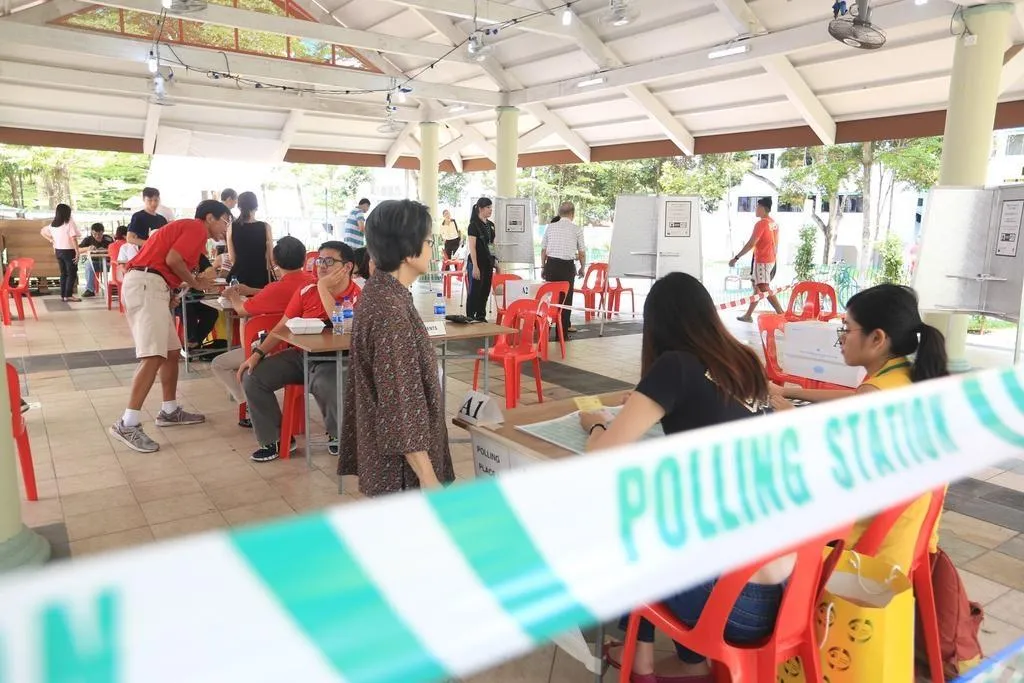2020 大选:致中立人士的一封信
解答关于新加坡选举的一些常见误解和传言。
|1 min read

<p>作者:Shawn Lee</p> <p>还有不到一个月,新加坡就要开始选举投票了。每次选举中都会有三个主要群体 - 一、忠实的现任党派支持者;二、忠实的反对党派支持者;三、中立人士,即那些尚未做出决定的人,希望他们也是会花一些时间来思考政党、候选人及其立场的人 - 因为这些因素将决定国家的前进方向。</p> <p>本文专门针对中立人士撰写,其内容由 3 个部分组成 - A. 解答关于新加坡选举的一些常见误解和传言;B. 摇摆选民与中立人士可以参考的 3 大指标;C. 人们可能会对执政党抱有的 3 大误解。</p> <h3 id="a-3" class="“headings“">A. 3 大常见误解</h3> <p><b>1) 反正人民行动党都会当选,还弄这么麻烦干嘛呢,</b></p> <p>许多人认为选举最后的结果都是一样的:人民行动党将执掌大权。但情况并非如此。比如 2011 与 2015 年时的选举,几乎所有的选取中都存在竞争。</p> <p>除了现任执政党外,我们还可以关注其他两到三个反对党派,比如工人党、新加坡民主党以及新加坡前进党。IPS 在 2015 大选之后的一次调查中发现,前两个当配被认为是“可信”的党派,新加坡前进党则获得了大量的媒体报道。</p> <p>那么这有什么关系呢,嗯,大部分的法案需要简单多数同意才能通过 - 即应该有 50 % +1 个人投票赞成该法案,其才能被通过。</p> <p>今年的选举中会竞争 93 个席位。其中,工人党很有可能会竞争 20 个席位,新加坡民主党则为 11 个,新加坡前进党 19 个。也就是说那些“可信”的党派总共会对 50 个席位展开竞争 - 这也是执政党可能会失去的席位数。</p> <p>50 个席位也足以组成否认人民行动党的简单多数投票,这意味着法案可能无法通过。包括那些本质上是用以确保政府机构获取资金的供应法案。供应的损失通常意味着对政府的信心丧失。</p> <p>所以这么想的话,关系还是挺大的对吧,想想人民行动党确实能够入围,但会被那些“可信”的党派占据超过 50 % 的席位,不。</p> <p>顺便说一句,还记得特朗普当初是怎么赢得竞选的吗,当时没有足够的人去投票,因为这些人觉得反正其他人都会去投克林顿的。所以,你手上的选票十分重要。</p> <p><b>2) 我对于投票知之甚少</b></p> <p>那现在就是学习的好时机。</p> <p>你现在选出进入议会的人士,会决定政策的制订方式。他们会继续质地能战略,解决我们生活各个方面 - 教育、卫生、国防等等 - 中存在的问题。这些事也同样需要资金,所以它会影响预算方案的制订和融资方式。当然,你要交多少税也会受到影响。</p> <p><b>3) 我投得票不会保密</b></p> <p>来自各个党派的成员会对整个流程进行监察,他们会认同人们所投出的票是得到了保密的。虽然所用的投票纸是带有序列号的,但仍然需要很多信息才能识别出身份信息;其主要目的是确保选举的公平性,当然还要确保选票箱不会塞不下。</p> <h3 id="b" class="“headings“">B. 对摇摆选民的建议</h3> <p><b>1. 仔细查看党派宣言与介绍</b></p> <p>a. 了解自己的选票投给了谁。不要盲目投票。记住 - 选票是很宝贵的。<br>b. 选择你认为最能代表自己观点的党派与候选人。<br>c. 思考 - 党派的信誉如何,他们是不是每隔 5 年才会突然出现在公众面前 - 如果是的话,那他们在能不能积极地代表你的利益,积极地服务你,<br>d. 候选人的信誉如何,他们有什么背景,为什么他们是合适的候选人,他们是不是有些利益关联,或是有自己的安排,</p> <p><b>2. 调查可衡量情绪,投票可衡量信念</b></p> <p>a. 不要被过去的调查或观点左右,不要轻信所谓的可以投票给谁或给哪个党派的言论。还记得民意调查时大家都称克林顿将会胜利,但最终这没有实现吗,<br>b.此外也不要太相信所谓预测,再准的预测也想不到会有 Covid-19 疫情。<br>c. 竞选期间是不允许进行民意调查的,也不允许进行投票后民意调查。<br>d. 所以,按照你所相信的东西来投票 - 不要被他人左右。</p> <p><b>3. 明智地用一天来冷静</b></p> <p>a. 在竞选活动中,人们很容易受到情绪和舆论的影响。<br>b. 冷静日可以让选民更深入地思考在竞选期间可能发生的事件,而不是情绪化地做出决定。<br>c. 你可以用这段时间来看看各个党派的行为和他们的立场,因为这些信息往往会被淹没在竞选热潮中。<br>d. 投票时避免做出情绪化的决定 - 投票行为不仅仅会决定你自己的未来,整个国家的未来也在你手中。</p> <h3 id="c" class="“headings“">C. 对于人民行动党的误解</h3> <p><b>1) 没有多样性的观点</b></p> <p>这一党派并不是单一的实体。党派成员们确实有自己的观点,有时也会是不同的观点 – 比如陈川仁、吴国光和潘丽萍 – 在有需要时,他们会毫不畏惧地对现行政策提出批评。</p> <p><b>2) 这是一个顽固的政党,不愿改变,不愿倾听</b></p> <p>你可能还记得这个美妙的说法 -“神圣的牛(sacred cows,指不可冒犯的东西)”;你可能会认为党派是惮于或是没有能力来面对我们今天所面临的新挑战,或者只是完全不去应对。还记得中学分流制这一“神圣的牛”吗,还不是一下子就被科目编班全面计划给替代了。还有稍远一些的生产力提升,你觉得这是为什么,因为这样之后我们便可降低对于外国人力的依赖 - 很多人都在呼吁这件事。还有稍近一些的事:雇主表示,新的外国工人宿舍标准花费太高。但政府依然推行了它,因为这是正确的做法。神圣的牛,不听反馈,事实可能并不是如此。</p> <p><b>3) 反正候选人都一样</b></p> <p>我敦促大家去看看今天介绍的候选人。还记得大家普遍批评党派只会推出公务员吗,我需要说明的是,这不是因为他们不想尝试。而是从私营部门招募人员是一件非常难的事 - 为什么要放弃自己的隐私,还要来花钱呢,但人民行动党坚持了下去,我也很惊喜地看到这次来自私营部门的代表更多了。</p> <h3 class="“headings“">结论</h3> <p>最后,在这次选举中,我和许多同龄人都有资格投票,无论是第一次还是第二次。许多人可能会纠结要把票投给哪个党派。我就是其中纠结的一员。但是要知道一点 - 没有一方是完美的,没有一方会完全契合你的观点。选择一个最符合你的愿景,也能够得到你信任的党派就行。</p>

